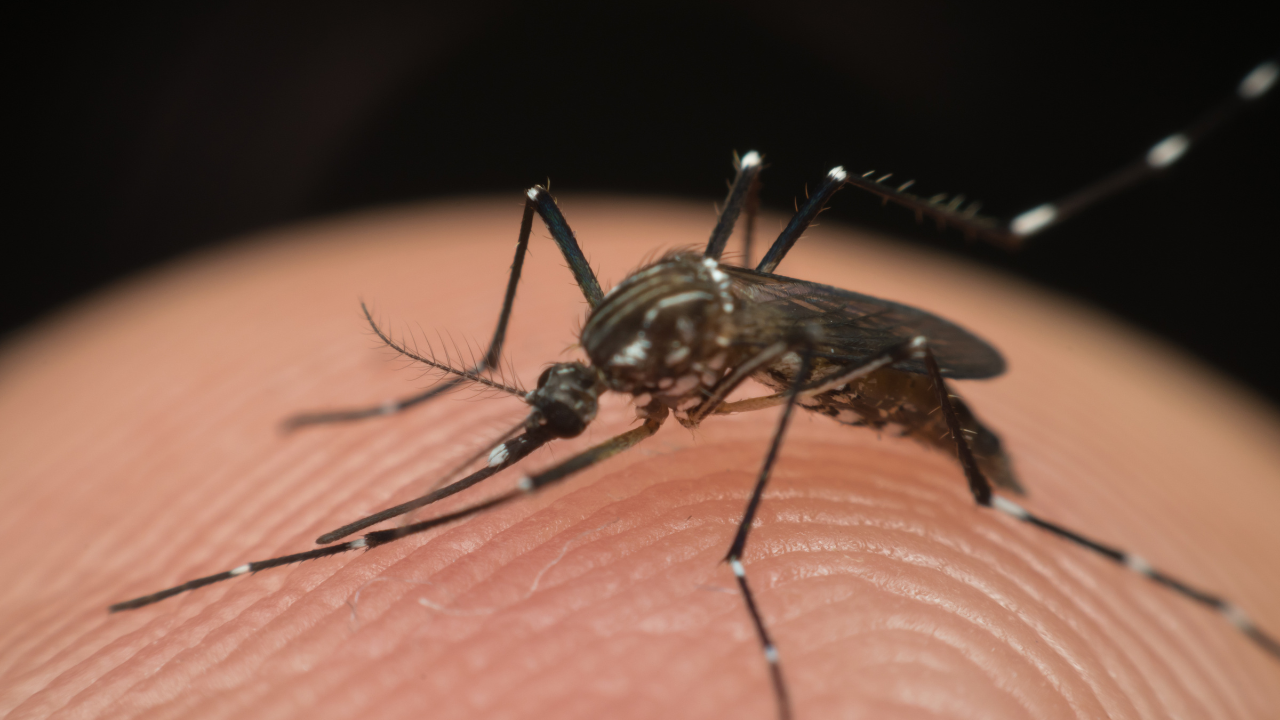Health
China Battles Over 7,000 Chikungunya Cases; US Issues Travel Advisory

China is currently facing a significant outbreak of Chikungunya, a mosquito-borne viral disease, with more than 7,000 cases reported in the Guangdong province since July 2023. The city of Foshan has become the epicenter of this outbreak, prompting local authorities to reintroduce containment measures reminiscent of those seen during the COVID-19 pandemic.
Health officials have implemented strict protocols, including not discharging patients from hospitals until they test negative for the virus. In a bid to mitigate the spread of Chikungunya, hospital beds are now being covered with mosquito nets. The situation has gained international attention, leading the US Centers for Disease Control and Prevention (CDC) to issue a Level 2 travel advisory, urging travelers to exercise enhanced precautions when visiting China.
The Chinese Center for Disease Control and Prevention (China CDC) reported nearly 3,000 new cases in just the past week, with the infection now affecting at least 12 cities within the province. Authorities suspect that the virus entered China through imported cases, as Chikungunya continues to spread across various regions globally.
To combat the outbreak, the Chinese government has initiated aggressive measures, including large-scale mosquito control operations and public awareness campaigns. Local households and communities face fines of up to 10,000 yuan for failing to eliminate potential mosquito breeding grounds. Citizens are advised to eliminate stagnant water, utilize mosquito repellents, and sleep under protective nets to reduce the risk of infection.
Understanding Chikungunya
Chikungunya is caused by the chikungunya virus (CHIKV), an RNA virus first identified in Tanzania in 1952. It is transmitted primarily by Aedes aegypti and Aedes albopictus mosquitoes, which are also responsible for the spread of dengue and Zika viruses.
Symptoms of Chikungunya typically manifest between 4 to 8 days after a mosquito bite and include a sudden high fever and severe joint pain. Additional symptoms may consist of headaches, muscle pain, rashes, and swelling in the joints. While most individuals recover within a few days to weeks, some may experience lingering joint pain for months or even years. Rarely, complications can arise, affecting the eyes, heart, or nervous system.
Frequently Asked Questions about Chikungunya
Is Chikungunya contagious from person to person?
No, Chikungunya is not transmitted directly between individuals. It spreads only through the bite of an infected mosquito.
Can Chikungunya be fatal?
Deaths due to Chikungunya are extremely rare, although complications may occur in older adults or those with pre-existing health conditions.
How can I protect myself from getting infected?
To minimize the risk of infection, individuals are advised to use mosquito repellents, wear long-sleeved clothing, sleep under mosquito nets, and eliminate stagnant water around their homes.
Is there a vaccine or cure for Chikungunya?
Currently, there is no vaccine or specific antiviral treatment for Chikungunya. Management focuses on relieving symptoms through hydration, rest, and pain relief medications.
As the situation continues to develop, both local and international health authorities remain vigilant in their efforts to contain the spread of Chikungunya in China and beyond.
-

 World5 months ago
World5 months agoSBI Announces QIP Floor Price at ₹811.05 Per Share
-

 Lifestyle5 months ago
Lifestyle5 months agoCept Unveils ₹3.1 Crore Urban Mobility Plan for Sustainable Growth
-

 Science4 months ago
Science4 months agoNew Blood Group Discovered in South Indian Woman at Rotary Centre
-

 World5 months ago
World5 months agoTorrential Rains Cause Flash Flooding in New York and New Jersey
-

 Top Stories5 months ago
Top Stories5 months agoKonkani Cultural Organisation to Host Pearl Jubilee in Abu Dhabi
-

 Sports4 months ago
Sports4 months agoBroad Advocates for Bowling Change Ahead of Final Test Against India
-

 Science5 months ago
Science5 months agoNothing Headphone 1 Review: A Bold Contender in Audio Design
-

 Top Stories5 months ago
Top Stories5 months agoAir India Crash Investigation Highlights Boeing Fuel Switch Concerns
-

 Business5 months ago
Business5 months agoIndian Stock Market Rebounds: Sensex and Nifty Rise After Four-Day Decline
-

 Sports4 months ago
Sports4 months agoCristian Totti Retires at 19: Pressure of Fame Takes Toll
-

 Politics5 months ago
Politics5 months agoAbandoned Doberman Finds New Home After Journey to Prague
-

 Top Stories5 months ago
Top Stories5 months agoPatna Bank Manager Abhishek Varun Found Dead in Well









